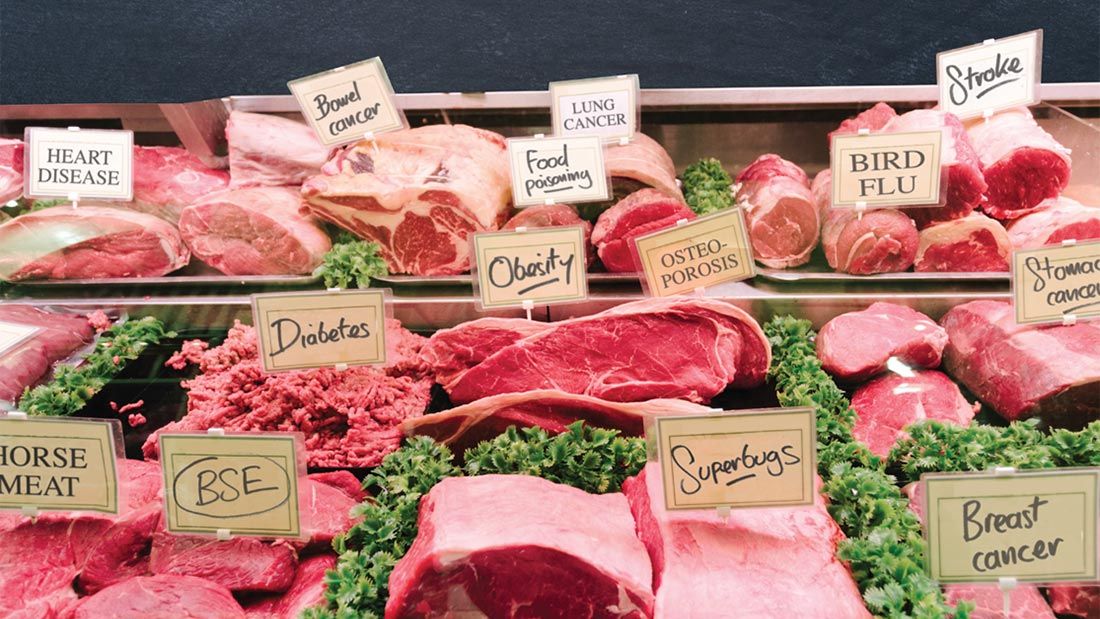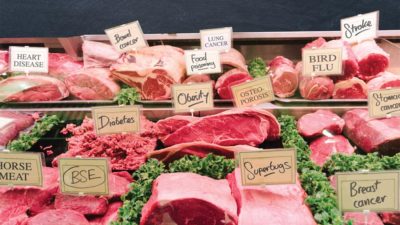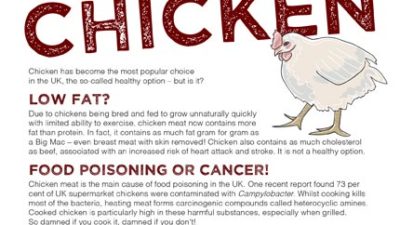Red and processed meat linked to increased risk of heart disease

The biggest review of all large-scale studies to date finds red and processed meat increase the risk of heart disease, according to research from the University of Oxford.
Heart disease is caused by narrowed arteries that supply the heart with blood. Almost eight million people are living with a heart or circulatory disease in the UK. They cause around a quarter of all deaths in the UK. That’s more than 160,000 deaths each year – that’s one every three minutes. This presents a huge burden to the NHS.
Researchers at the University of Oxford’s Nuffield Department of Population Health conducted the largest review of evidence to date, including thirteen studies involving over 1.4 million people. Study participants completed detailed dietary assessments, and their health was tracked for up to 30 years.
The results published today in Critical Reviews in Food Science and Nutrition found that the consumption of red meat and processed meat was associated with a higher risk of heart disease:
- Each 50 grams per day higher intake of processed meat (eg bacon, ham, and sausages) increased the risk of heart disease by 18 per cent.
- Each 50 grams per day higher intake of unprocessed red meat (such as beef, lamb and pork) increased the risk of coronary heart disease by nine per cent.
The findings, they suggest, could be because of the high content of saturated fat in red meat, and of salt in processed meat. High intakes of saturated fat increase levels of “bad” LDL cholesterol, whilst excess salt consumption raises blood pressure. Both LDL cholesterol and high blood pressure are risk factors for heart disease.
Other possible explanations include the substance trimethylamine-N-oxide (TMAO), which might contribute to an increased risk of heart disease by promoting atherosclerosis (narrowing of the arteries). Red meat intake can lead to increased circulating TMAO resulting from gut bacteria breaking down a substance in meat called L-carnitine. Interestingly, vegans produce none, or very little. There is also evidence that red and processed meat is linked to higher levels of inflammatory biomarkers due to their high haeme (iron) content.
Whatever the specific mechanism linking red and processed meat with heart disease, the important message is that you may be able to lower your risk by going meat-free! Previous work from the same team has also indicated that even moderate intakes of red and processed meat are associated with an increased risk of bowel cancer.
Dr Keren Papier, from the Nuffield Department of Population Health, co-lead author of the study, said: “Red and processed meat have been consistently linked with bowel cancer and our findings suggest an additional role in heart disease. Therefore, current recommendations to limit red and processed meat consumption may also assist with the prevention of coronary heart disease.”
Dr Anika Knüppel, from the Nuffield Department of Population Health and the other co-lead author of the study, added: “We know that meat production is a major contributor to greenhouse gas emissions and we need to reduce meat production and thereby consumption to benefit the environment. Our study shows that a reduction in red and processed meat intake would bring personal health benefits too.”
Find out how meat harms health here.






